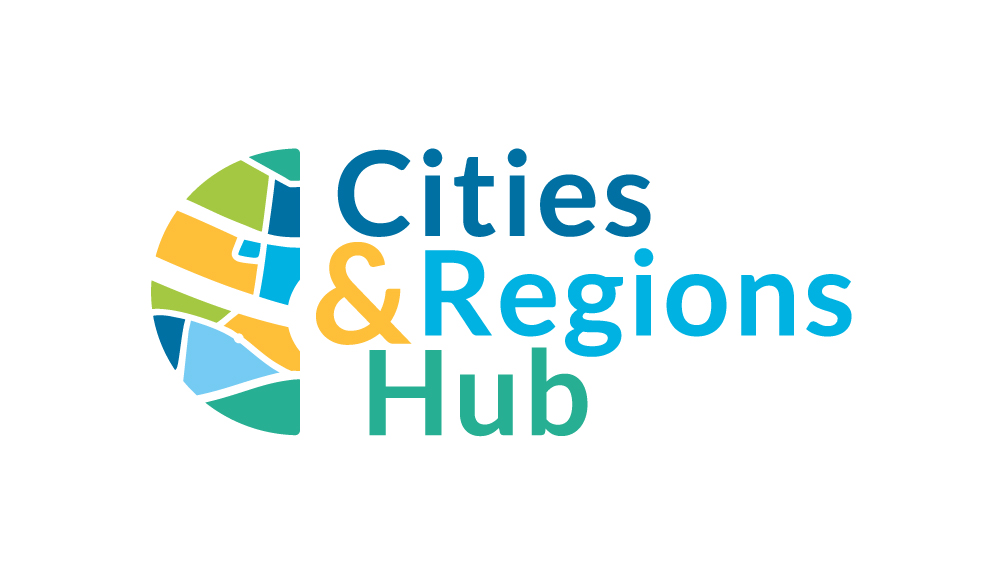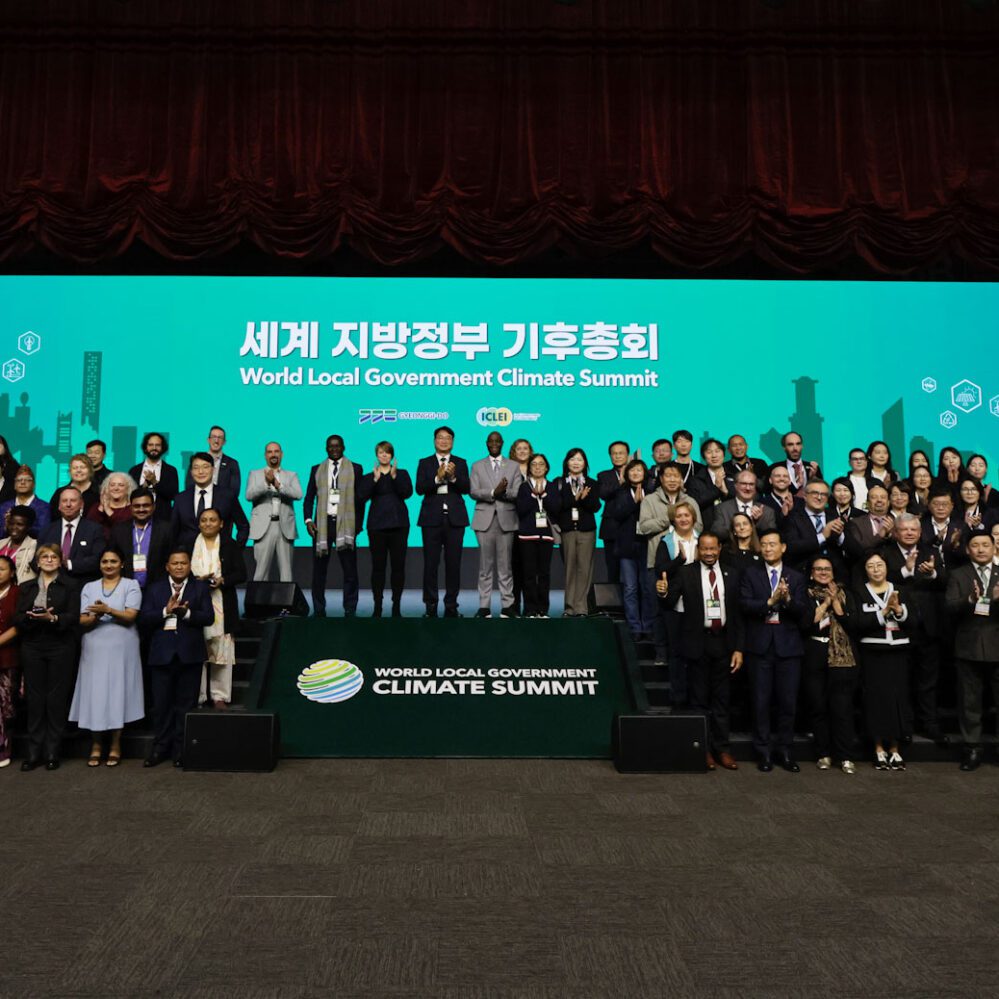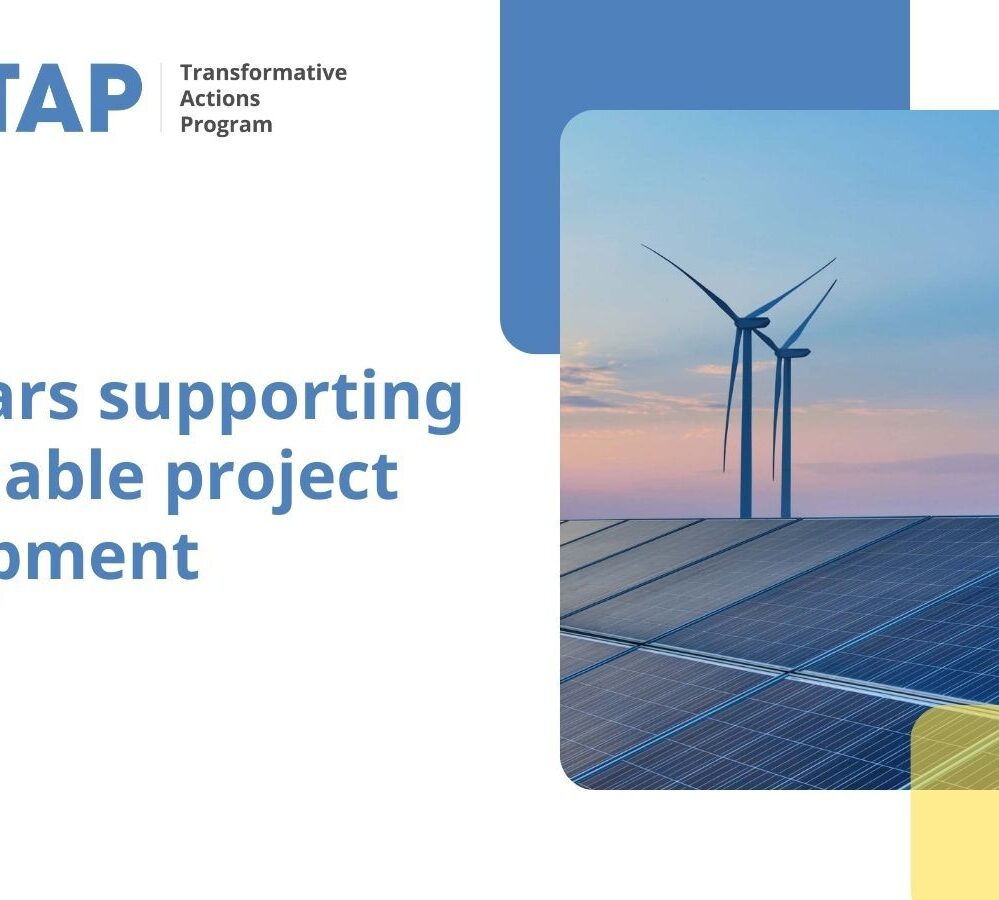As the world looks toward COP30 in Belém, the Brazilian Presidency has set a clear vision: this should be the “implementation COP.” Building on the symbolism of the Amazon and the concept of mutirão – a collective, society-wide mobilization – Brazil is positioning COP30 as the moment when high-level climate visions must translate into tangible outcomes. For cities and regions, this framing underlines what has long been evident: implementation happens locally.
This urgency is sharpened by the September 2025 deadline for countries to submit their next round of Nationally Determined Contributions (NDCs 3.0). The test of ambition will not only be in headline targets, but also in how well these plans recognize and empower local and regional action. To date, only around a quarter of national climate commitments meaningfully integrate urban priorities, leaving a significant gap between where emissions are generated and where solutions can be delivered.
At the mid-year climate talks in Bonn (SB62), these dynamics came into sharper focus. While negotiators struggled with complex issues such as credible finance sources and adaptation metrics, local leaders and their national partners advanced concrete mechanisms – through initiatives like Town Hall COPs and CHAMP – that will carry momentum into Belém. Nowhere is this clearer than in Brazil itself, where the model of climate federalism is thriving, which aligns federal, state, and municipal priorities to shape both the country’s NDC and its leadership role as COP30 host.
Considering all political and logistical challenges, cities and regions have an opportunity to play the role of solutions-provider, and provide wins for all parties and stakeholders.
Yunus Arikan, Director of Global Advocacy for ICLEI, said, “If COP30 is to be remembered as the implementation COP, then we need more than ambitious words – we need the structures that make delivery possible. That means a formal UNFCCC mechanism where local and other subnational governments are fully engaged in shaping and driving implementation of NDCs and Paris Agreement outcomes and full synergy is achieved with sustainable urbanization and climate action. Cities are where commitments come to life, and it is time for the UNFCCC process to reflect that in a permanent, institutional way. This Belém legacy should pave the way for a collective commitment to design, build and live in climate and human friendly cities of the 21st century, to be guided with the IPCC Special Report on Cities in 2027.”
**Interested in following cities and regions at COP30? Sign up for our daily updates**
ICLEI’s history in the Amazon: Cities safeguarding the forest
The Amazon is not only the world’s largest tropical forest and a global climate regulator – it is also home to 50 million people, 72% of whom live in cities. These urban centers are where critical decisions on climate, energy, and land use are made. Safeguarding the Amazon therefore means empowering its cities. Since 2019, ICLEI has been working to raise up the voices of Amazonian local and regional governments, connecting them to global climate agendas and co-developing sustainable solutions that protect the forest while building resilient, inclusive communities.
Through its longstanding presence in the Amazon, ICLEI supports 18 Members across five countries, including 14 local governments and four regional governments. This work spans technical expertise in climate planning, convening power to unite leaders, and partnerships to mobilize finance for sustainable projects.
Since 2022, ICLEI has hosted the Amazon Regional Meeting, creating space for cities and regions to collaborate on shared challenges. The upcoming 4th edition in Macapá in 2025 will spotlight the urban Amazon’s strategic role on the road to COP30 in Belém. ICLEI has also provided direct strategic support to governments like Amapá, helping them prepare strong agendas and project portfolios for COP negotiations.
Belém, Brazil serves as COP host in the heart of the Amazon
As host city of COP30, Belém has emerged as a model for Amazonian urban leadership in advancing climate action. An ICLEI Member since 2022, the city is charting a path toward a low-carbon, climate-resilient, and inclusive future through the Belém Local Climate Action Plan (PLAC-Belém), launched in 2024 with ICLEI’s support. Built on robust technical foundations – including a greenhouse gas emissions inventory, a climate risk and vulnerability assessment, and an ecosystem services diagnosis – the plan positions Belém to address its unique environmental and social challenges while aligning with the Paris Agreement and the UN 2030 Agenda. These studies, developed in partnership with the EU, IUCN, and the Inter-American Development Bank, made Belém the first Amazonian city to produce such comprehensive climate planning materials.
Beyond its local efforts, Belém is helping shape regional and global conversations on Amazon governance. With ICLEI’s support, the city coordinates the Forum of Pan-Amazonian Cities, giving voice to local governments across the region, and participates in initiatives that expand access to climate finance and multilateral engagement. Building on the momentum of the Belém Declaration – signed by eight Amazonian countries to strengthen subnational participation in the Amazon Cooperation Treaty Organization – ICLEI is working to ensure that cities like Belém have an institutionalized role in advancing regional sustainability and resilience. By bridging local action with international advocacy, Belém demonstrates how cities can drive ambitious climate solutions and inclusive development at the very heart of the Amazon.
How do cities and regions participate in global climate summits?
For over twenty years, the Local Governments and Municipal Authorities (LGMA) Constituency has been a driving force in bringing the voices of local governments to the forefront of global climate discussions. In the realm of international climate negotiations under the UNFCCC, ‘constituencies’ represent key groups from various sectors of society, ensuring a multifaceted perspective in the discourse. These constituencies include a diverse array of stakeholders, ranging from non-governmental organizations to business entities and indigenous populations.
The LGMA Constituency plays a critical role in this framework. It advocates for the interests and perspectives of subnational entities like cities, towns, and regional governments. As a voice for local governments, the LGMA highlights the unique challenges and innovative solutions these bodies offer in addressing climate change. The LGMA ensures that the strategies and needs of local authorities are integrated into global climate policies, a crucial aspect considering the increasing importance of urban areas in both contributing to and solving environmental challenges. ICLEI serves as the official focal point of the LMGA to the UNFCCC.
ICLEI holds a special role in this space, acting as the LGMA Focal Point. Through concerted leadership within the LGMA community in the past 30 years, we have secured wins in multiple Climate COPs outcomes, including specific references to multilevel action and urbanization throughout the negotiated outcomes, voluntary outcomes, official agendas and stated priorities of the Climate COPs since our last strategic vision in 2021.
With the goal of using COP30 to bridge local, national and multilateral goals, an ecosystem of influential platforms has emerged, including the LGMA Constituency Joint COP30 Position and year-round advocacy, the Coalition for High Ambition Multilevel Partnerships (CHAMP) for Climate Action, the Joint Outcome Statement of the COP30 Local Leaders Forum and the Ministerial Meeting(s) on Urbanization and Climate Change. Together, these platforms demonstrate the strength and vitality of local and other subnational governments working together to deliver on climate goals.
Five key messages from the LGMA Constituency
How can local and subnational governments speak with one voice? The LGMA has united around the COP30 Joint Position as the message to bring to nations. The position makes five clear calls to Parties: 1) Work towards a formal UNFCCC work program that is dedicated to furthering multilevel climate action in collaboration with local and other subnational governments; 2) Operationalize adaptation indicators that reflect local and territorial priorities and capture their progress to the Global Goal on Adaptation; 3) Formally recognize local and other subnational actors as indispensable partners for national governments in implementing just transition policies and programs; 4) Elevate the localization of climate finance as a fundamental pillar of the evolving global financial architecture, ensuring resources are appropriately channeled to local and regional governments; and 5) Usher in a new era for multilevel cooperation through the design of new and holistic climate and sustainability governance processes, including through upcoming UN80 reforms.
The full position, including all endorsements, will be released on the first day of COP30.
The Constituency has also published a Guidance document for negotiators, that includes proposed text for outcomes of COP30 on topics such as multilevel governance and urbanization, just transition, climate finance and food.
Bringing Town Hall COPs to COP30
In the lead-up to COP30 in Belém, communities around the world are hosting Town Hall COPs – locally driven dialogues that connect residents, local leaders, and national representatives to chart pathways for stronger climate action. Each Town Hall COP generates outcomes that link local priorities with national climate commitments, creating concrete inputs for the next round of Nationally Determined Contributions (NDCs) and for the global negotiations in Belém. At COP30, ICLEI will bring these community voices and outcomes to the international stage through the Cities & Regions Hub, ensuring that the lived realities and solutions of towns, cities, and regions inform the “implementation COP” and shape how climate ambition is delivered in practice.
In the lead-up to COP30 in Belém, more than 40+ communities across six continents hosted Town Hall COPs – locally driven dialogues that connected thousands of residents, local leaders, and national representatives to chart pathways for stronger climate action. The goal of each Town Hall COP was to connect climate action at every level. This includes linking local priorities with national climate commitments to show how climate ambition is delivered in practice at the local level.
We clearly heard the message in 2025 that national governments see value in the Town Hall COP model to help connect their local communities to country-level plans. Strong endorsements of the Town Hall COP approach and participation by national governments such as South Africa, Malaysia, Kiribati and Japan show the strength of Town Hall COPs, which will be on display at COP30.





